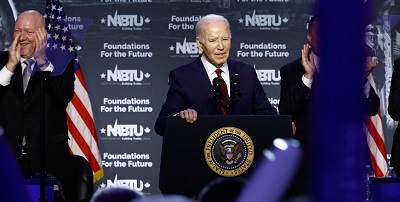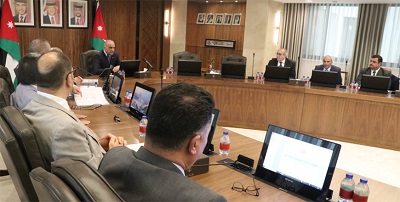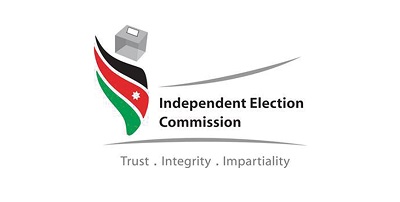US sanctions on Hezbollah: Subjugation and ‘disciplining’ - By Ali Al-Amin, Alarabiya
US President Donald Trump recently signed a new revised sanction law on Hezbollah and this coincided with the anniversary of the 1983 Beirut barracks bombings, which claimed the lives of more than 200 US soldiers.
Washington accuses Hezbollah of being behind the bombing while the Lebanese organization has denied its role and has refused to take responsibility for the attack.
Partners in crime
The law adopted by the US Congress a few weeks ago puts Hezbollah in the ranks of criminal organizations and criminalizes whoever deals with it be it individuals or institutions. The law also allows the US President to impose sanctions on official institutions, governments and countries that deal with Hezbollah without taking prior consent of the US Congress.
The law is in line with a series of other resolutions and laws issued earlier this year and in previous years against Hezbollah and which aim to block Hezbollah’s sources of funding. It came before implementing the second round of sanctions on Iran in November.
Furthermore, this law was approved in light of persistent attempts by Hezbollah to put pressure on the upcoming government. Following the recent parliamentary elections, the commander of the Quds Force Qassem Soleimani said that Hezbollah and its allies have won majority of the seats in the new Lebanese parliament.
Despite difficulties hindering government formation, the process seems to have reached its final stages and the government is likely to be announced this week after the government formation process finally settled for a formula that would allow Hezbollah to exercise control over the new government via a number of ministers and hence prevent the government from taking any decision that doesn’t meet its interests.
In this context, it can be said from a political and constitutional standpoint that Hezbollah controls two branches of power — the legislative branch through Speaker Nabih Berri, who has applied the rules of alliance with Hezbollah and the executive branch through its ally, the president, and the majority which it controls through the government.
Hezbollah’s hegemony
These steps which Hezbollah has taken by investing in its military and security power to achieve a majority within the constitutional institutions actually complete its control over the Lebanese landscape – a challenge that puts the entire of Lebanon before a possible package of American sanctions that may be difficult to implement unless the American decision has reached the phase where it does not care if it destroys the entire structure over everyone in Lebanon.
The nature of sanctions in the new US law has the potential of making the entire Lebanese government and most of the country’s institutions in which Hezbollah has become involved a target. This certainly affects official Lebanese institutions as it makes them subject to sanctions. The question is if Washington actually implements its sanctions, then do the Lebanese people understand the consequences of these sanctions on them and on their already deteriorating lives?
Amal Member of Parliament Mohammed Khawaja has said that Lebanon can overcome the fallout of this law as it has done in the past. In contrast, American agencies may realize that the law is a means for applying pressure on Hezbollah in the first place and then on Lebanon especially since the new law has broadened the circle of those affected by it. This suggests that there is a coordinating authority that can be used according to the American need and to help Lebanon return to the bosom of the state that is if there are Lebanese parties that are serious about restoring the sovereignty and prestige of the state by finally breaking free from the dual state anomaly, which has allowed Hezbollah to rule and control Lebanon.
The unwilling accomplice
The gradual accretion of US sanctions on Hezbollah has placed financial pressure on the organization and forced it to alter its calculations for immunizing itself within the state. There is no doubt that the party is under financial pressure from the US sanctions on it and on Tehran. As a result Hezbollah has resorted to tightening its grip on Lebanese institutions in order to take advantage of the financial and administrative chaos to cover up partisan costs. Hezbollah used the municipalities which are funded by taxes on citizens to accommodate thousands of its supporters in the so-called “municipal police”. It also took advantage of the Ministry of Health and social security institutions to provide millions of dollars to operate its healthcare centers that mainly treat its supporters and fighters. These centers had benefitted from Iranian funding and from other well-known states.
In addition to these means of entrenchment in state institutions, Hezbollah had through influential people invested in Lebanese ports to bring in illegal goods that benefit a number of traders who pass on part of their profits to the party. There are also the smuggling lines from Syria of legal and illegal goods as Hezbollah controls the borders with Syria.
There are many areas that highlight Hezbollah’s investment in the weakness of the state in order to secure additional financial resources to meet the deficit caused by the US sanctions, but what should be noted is that Hezbollah’s behavior in confronting these sanctions further links the fate of the Lebanese state on the economic, financial and security levels on its own survival, and is implicitly saying that it holds tightly on to the state and that any excessive pressure in targeting it would lead to the downfall of the Lebanese state.
Taking the state hostage
Based on this formula, Hezbollah has refused to listen to the advices given to it by some Lebanese officials not to be partisan in the formation in the new government. Hezbollah has rejected the advice and insisted on giving ministerial positions to party members, in disregard of all the dangers that could be caused by appointing party officials as ministers especially after the new US sanctions law.
The danger of sanctions is looming over Lebanon, and Hezbollah is aware that it has succeeded in putting sanctions on everyone and not just on itself. Washington’s policies are not driven by ideology or vindictiveness, but are led by a purely pragmatic approach. Hezbollah, like Iran, considers that influence is the most important element while ideology is a way to attract supporters and the public, and any understanding that provides this influence does not pose a problem whether it’s implicit with Israel or public between Washington and Tehran. In Lebanon, Hezbollah can remain in control, as long as the Lebanese do not express their discontent, and as long as the party does not violate the rules of international, American and Israeli policies, and this is what was proven through its war against the terrorists.
Israeli Prime Minister Benjamin Netanyahu’s visit to Oman and the cold and implicitly welcoming Iranian reactions show that Tehran is ready to follow Israeli interests in order to alleviate the effects of US sanctions on it and ensure the protection of its influence on Arab countries and Lebanon. Netanyahu's visit to Muscat on the eve of US sanctions on Tehran is an Iranian message to Arabs, and that’s where the danger lies.
Latest News
 'Sinwar Above Ground': Hamas official's revelation shocks Israeli Occupation
'Sinwar Above Ground': Hamas official's revelation shocks Israeli Occupation US president signs bill to provide new aid for Ukraine
US president signs bill to provide new aid for Ukraine Prime minister directs government to support IEC ahead of upcoming elections
Prime minister directs government to support IEC ahead of upcoming elections Parliamentary elections for 20th Lower House to be held on September 10 – IEC
Parliamentary elections for 20th Lower House to be held on September 10 – IEC Amman Chamber of Commerce says GDP grows by 4.4% in 2023
Amman Chamber of Commerce says GDP grows by 4.4% in 2023
Most Read Articles
- More than 100 arrested at US university pro-Palestinian protests
- Irish foreign minister visits Palestinian refugee camp in Amman, vows support to UNRWA
- King, French president discuss regional developments
- Senior Hamas official says movement is “awaiting response” in ceasefire negotiations
- Jordan remembers Queen Zein
- Ahead of feared Rafah invasion, Palestinians mourn bombardment dead
- US says downed Houthi anti-ship missile, four drones
- JAF carries out six more airdrops of aid into Gaza
- Cassation Court upholds over 3-year sentence for drug dealer
- Jordan completes human rights review before council’s evaluation Jordan completes human rights review before council’s evaluation